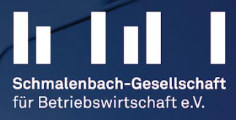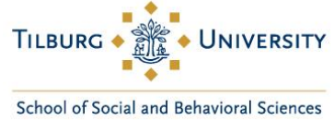Work-related stress can harm an individual’s health, well-being, and satisfaction and is a common problem (not only) in European countries (Aumayr-Pintar et al., 2015). It impacts the private sphere of life and can also have economic consequences for the employer through reduced work performance, lower productive output or employee absenteeism. Over the past seven decades, researchers have been engaged in the study of stress (Väänänen et al., 2012), and the interest and relevance continue to grow (Rigó et al., 2021).
Based on different theoretical conceptualisations, the measurements of stress (and strain) in industrial psychology, organisational sociology, or labour research (Abbas et al., 2013) are complex and situational. Individual diagnostic measurement tools are too large for population surveys. Consequently, these extensive surveys and panel studies apply short versions of stress measures (e. g., Siegrist et al., 2009). However, results from these population surveys are necessary to classify, compare and validate study results. In addition to the measures‘ brevity, the measurement type is also relevant. Studies indicate that the type of measurement can have a decisive impact on the results (Tobsch et al., 2018). This could be shown in a stress-theoretical measurement setting when testing the internationally used and valid effort-reward imbalance model (Siegrist, 2016). Therefore, there is a need to address theoretical concepts, the methodology of stress measures in extensive surveys and panel studies, as well as empirical findings from these surveys and studies such as the International Labor Office’s (ILOs) Decent Work Survey Program (Anker et al., 2002), Eurofound’s European Working Conditions Survey (Eurofound, 2022) or national survey such as the German Socio-Economic Panel (Socio-Economic Panel (SOEP), 2021).
Seminar at the IUC Dubrovnik (15-20 May 2023) & Special Issue
Based on these brief reflections, the purpose of the seminar and the aim of the special issue of management revue – Socio-Economic Studies is to focus on the diverse theoretical models, measures and concepts of stress applied in surveys and panel studies, and investigate and discuss findings from these surveys and studies in the context of the mentioned methodological challenges:
- Which stress concepts are implemented in surveys? How are these stress concepts adapted to meet the standards of survey methodology?
- What are the advantages and disadvantages of having different (and competing) measures?
- Which surveys and panel studies are suitable for stress measurements?
- What variables and concepts are needed in surveys and panel studies besides stress measures?
- How do the findings from different surveys differ?
- These are just some ideas and not an exhaustive list. The seminar welcomes empirical studies and theoretical papers and provides sufficient time for discussion and reflection.
Course Directors & Guest Editors
- Wenzel Matiaske, Helmut-Schmidt-University/University of the Federal Armed Forces Hamburg (Germany)
- Mandy Müller, Helmut-Schmidt-University/University of the Federal Armed Forces Hamburg (Germany)
- Simon Jebsen, University of Southern Denmark
Deadline for abstract submission for the seminar: 28 February 2023.
Deadline for submission of the full paper for the Special Issue: 30 August 2023.
Publication date: Issue 2/2024
View the complete Call here.









